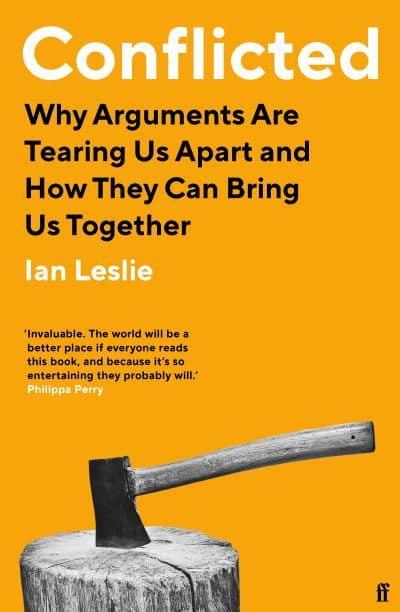Communication is Key
As part of our staff preparations for next year, we will be focussing on ‘communication’ after half term. We want to promote collaborative ways of working in the Forest classroom and the success of that collaboration is largely dependent on good communication being both understood, learned, and practised by our pupils.
We launched this module with a talk on Tuesday 21st February by Ian Leslie, the author of ‘Conflicted’ which he introduces below. It doesn’t mention classrooms once but it does use a wide range of real-life incidents and negotiations to illustrate its line of argument.
“The book is about how to have better disagreements – whether that’s in the public arena, or at work, or at home. This isn’t a “hey why can’t we all just get along” book. Nor is it a book about how to win an argument or persuade someone you’re right, even if it overlaps with those questions. It’s not about how to stop arguing; it’s about how to disagree and keep disagreeing in a way that advances everyone (‘everyone’ might be you and your partner, or a team at work, or a whole society). Disagreement is the best way of thinking we have. It weeds out weak arguments, improves decision-making, leads to new ideas, and, counter-intuitively, brings us closer to one another. But only if we do it well – and right now, we’re doing it terribly. We either get into rancorous, futile squabbles or – and this is probably the bigger problem – we avoid it altogether, engaging only with people who already agree with us. That’s bad for our relationships, bad for our workplaces, bad for our politics.
There’s really no reason we should be good at productive disagreement. We don’t get trained in it or taught it. We find it stressful and unpleasant, because it triggers ancient fight-or-flight responses. For most of human history, we haven’t needed to be good at it, because tradition and culture have resolved or suppressed so many potentially contentious questions. But now we’re in a world where everything is open to question – and we have these devices in our hands that mean we get into arguments with strangers any time we want. It’s quite the combo.
I’ve read some very worthy books about the principles of argumentation, as laid down by philosophers for hundreds of years. But for me they always leave out something crucial – how it feels. Argument is not a bloodless sport, nor should it be. It involves our emotions and our instincts; we feel it in our whole body, not just our brains. In order to find out how to do it well, I needed to talk to practitioners as well as theorists. I interviewed people who have tough, conflict-ridden conversations for a living: interrogators, hostage negotiators, addiction therapists, divorce mediators, diplomats. These people have an incredible amount of insight to offer that we can apply to our own lives. At the same time, I was talking to scholars – of philosophy, yes, but also of communication science and relationship psychology – and exploring some of the deeper questions. What role does conflict play in a good relationship? (A more important and more positive one than you imagine)”.
As predicted, Ian was a brilliant, thought-provoking, and very timely speaker. We hope that by bringing some of his ideas into the classroom, our pupils will go out into the world better equipped to make the changes so desperately needed right now.


